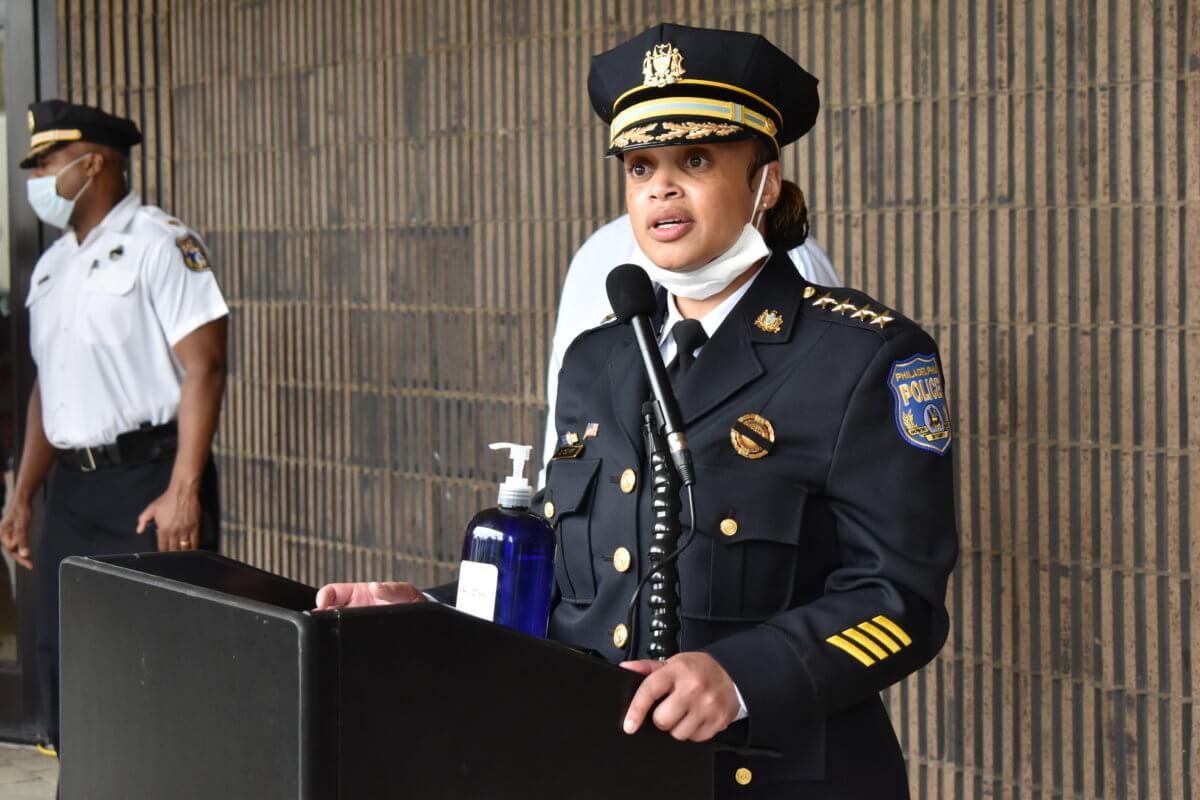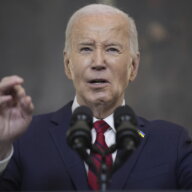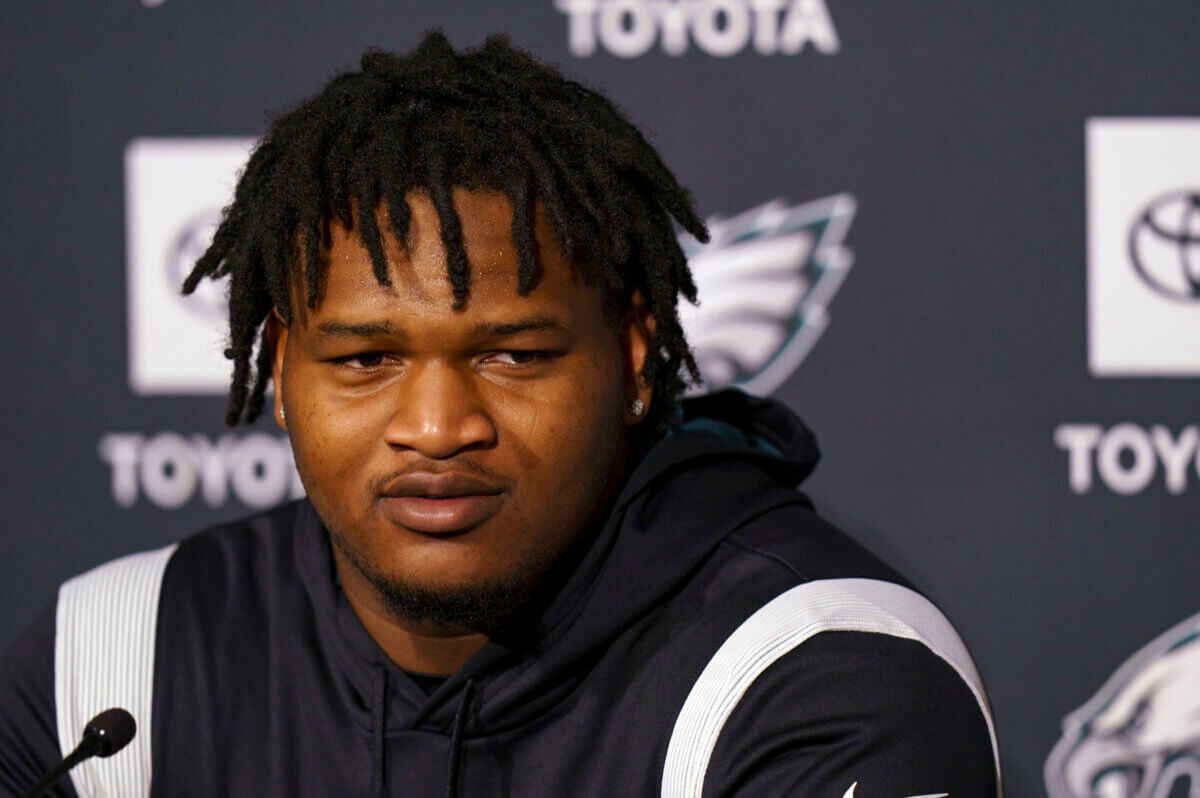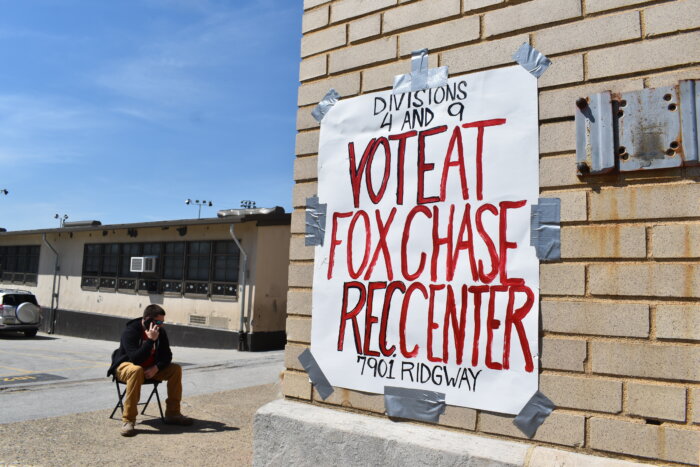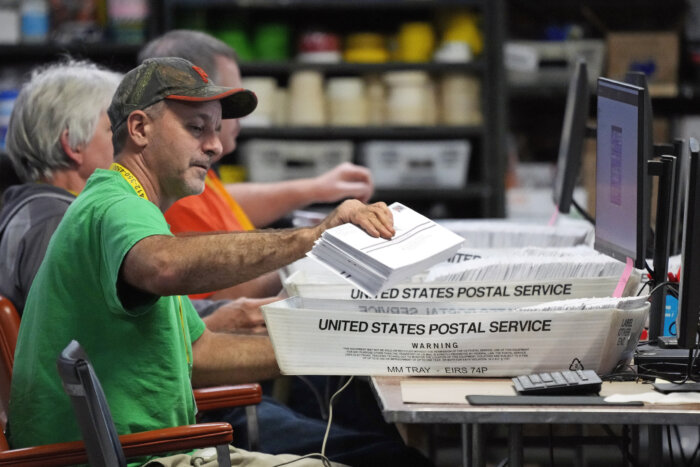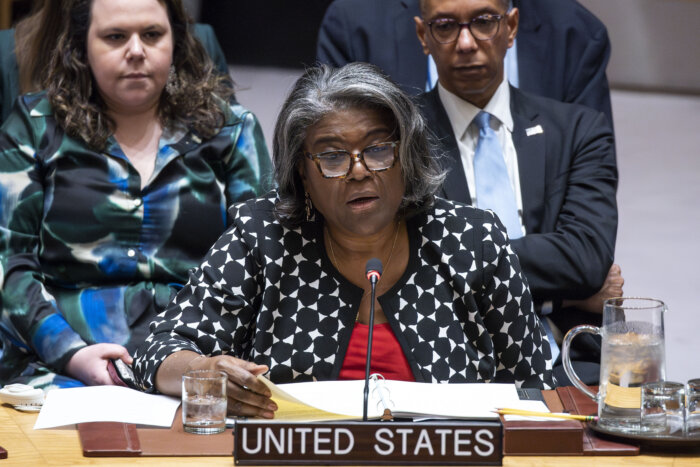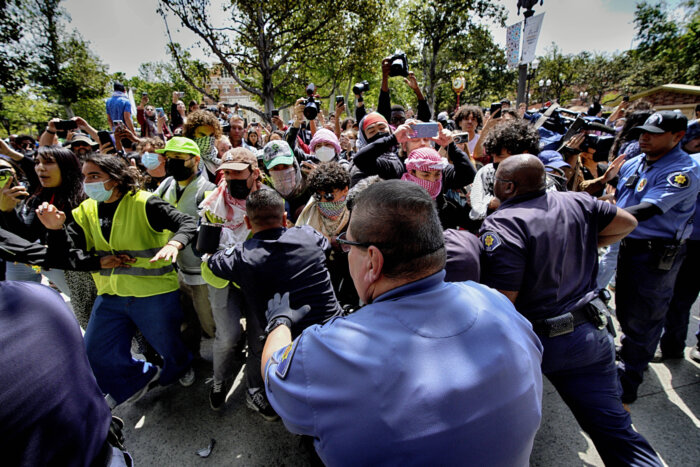A group that included Mayor Jim Kenney, Police Commissioner Danielle Outlaw and other top Philadelphia officials approved the use of tear gas before it was deployed on protesters last week on the Vine Street Expressway.
The final decision was made by an on-site commander Monday, June 1, but city leaders OK’d using what police call “less lethal munitions” the day before, Managing Director Brian Abernathy told City Council Wednesday.
Abernathy defended the controversial decision and suggested that banning tear gas and rubber bullets could be deadly.
“The use of force is a continuum, and if we are taking away steps five, six and seven, that means our officers have to jump from four to eight,” he said. “I think that’s dangerous. I think that limits options.”
Four Council members, including Jamie Gauthier, on Saturday called on police to not use tear gas in the future.
Gauthier said using such force perpetuates “the cycle of violence and oppression that these protests are targeting in the first place.”
Council members grilled Outlaw and other high-ranking police officials for about 2 hours and 45 minutes during a virtual hearing Wednesday afternoon, a day after Kenney backed down from devoting an extra $14 million to the PPD under Council pressure.
They asked about police spending but also touched on other topics, including the handling of demonstrations following the death of George Floyd and Philadelphia’s growing homicide rate.
It’s anticipated that a series of legislation related to police reform will be introduced at Thursday’s Council meeting.
Council President Darrell Clarke said he wants to see “aggressive reform.”
“We’ve got to talk about a smart restart as it relates to how we have the police department be a part of our government in a meaningful way,” he said.
Some members questioned the department’s response to looting and riots and suggested officers were focused in Center City, even as the unrest spread to West Philadelphia and other neighborhoods.
Outlaw said there was a shortage of resources at the beginning, but no areas were prioritized or given special treatment.
Councilman Isaiah Thomas said he called 911 several times during one night of rioting and no one answered. He also said a woman who had been shot couldn’t get through to operators and ended up driving to a protest for help.
Outlaw said the department is working on post-incident reports, which she said would be made public.
Reimagining law enforcement
The police commissioner, who took over in February, said she and city leaders were in a position to reimagine law enforcement “for the next 100 years.”
However, Outlaw said some planned reforms, including setting up an early warning system to identify problematic officers, wouldn’t be cheap.
Protesters have been calling on cities nationwide to “defund the police,” though disagreements remain over exactly what that means.
Most of the $14 million that was initially added in Kenney’s revised budget was going to cover labor costs, a result of an one-year coronavirus-related contract extension with the police union that granted officers a 2.5 percent raise.
Some of the funding was also going to cover additional body cameras and implicit bias training. Outlaw said the department is planning to continue with those initiatives and cover salaries by saving money on overtime.
Gauthier, a progressive who last year defeated longtime incumbent Jannie Blackwell, said Council should seriously consider decreasing spending on policing and focusing it in other areas.
Several Council members noted that officers are often asked to fill social service roles that have little to do with crime.
Outlaw said any meaningful cuts below last year’s funding level, nearly three-quarters of a billion dollars, would result in officer layoffs.
“I don’t think given this time, given what we’ve experienced in the last several days, that’s something we should really consider,” she said.
About 93 percent of the department’s budget is tied to salaries and benefits.
A few members expressed concerns about diversity within the department, which prompted Outlaw to say: “I think we can do better.”
Outlaw said she is “all for” a suggestion offered by Councilwoman Maria Quinones-Sanchez to test recruits for racial bias. Those entering the academy currently go through a psychological evaluation.
Right now, less than half of officers are equipped with body cameras. The department needs about 3,000 more, which it said would cost $4.7 million. In addition, the devices require $4.8 million annually in upkeep and storage, officials said.
Homicides can’t be on “the back burner”
Clarke said the PPD can’t allow homicides and shootings to be placed on “the back burner,” even as the department prepares to implement reforms.
So far this year, homicides are up 26 percent compared to the same point in 2019, and shootings have jumped about 30 percent.
“It just traumatizes the entire community and the city,” Clarke said. “I just want you to know we’re going to keep pushing on that issue.”
Several Council members raised concerns about the number of unsolved murders and the PPD’s homicide clearance rate, which is below 50 percent. Clearance refers to a case ending with a suspect being charged.
“I can’t quite get over the fact that we’ve increased the police budget by $120 million over the last five years, but homicide detectives don’t even have work cellphones,” Councilwoman Helen Gym said.
Outlaw said homicide detectives do not have the resources they need.
However, Deputy Commissioner Dennis Wilson said the unit’s case loads were on par with the national average prior to a recent spate of killings and coronavirus cases among detectives.
The department’s goal is to raise the clearance rate to 65 percent by the end of next year, Outlaw said.
Wednesday’s hearing was part of a series of ongoing budget meetings. Council must pass a municipal budget by June 30, the end of the fiscal year.



